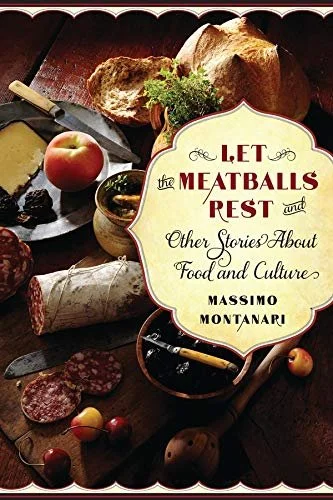This is a collection of 100 brief essays discussing specific foodstuffs, their histories and how they have helped shape the human societies that include them in their diets.
Potatoes, for instance, were introduced to Europe in the 16th century but their bland flavor and "subterranean nature" made them unappealing. Only when other crops had failed and starvation loomed did farmers turn to widescale production of the easy-to-grow spuds.
Garlic, likewise, was once considered fit only for peasants. Eating such strong and foul-smelling food was a damning mark of poverty in the 10th century.
And eggplant, first brought to Europe by Arabs, was long associated with "the lower class and Jews." Yet the peasant cuisine that emerged from their use would later be co-opted by the upper classes.
In his chapter, "The Beautiful and the Good," Montanari argues that beauty and beautiful food shouldn't be the privilege of the few.
"It is a primary need of the individual and of society. Beauty is natural, but it has to be cultivated and is therefore also culture. Beauty makes things more acceptable, more pleasing, more desirable.
"The ancient Greeks thought that the body and the spirit were fundamentally the same and that a truly beautiful man could not be other than truly good... And so it is for food. To be be really good it has to be really beautiful. Not only the rich food of grand occasions, but even humble, ordinary, daily food. Beauty is needed every day."
A wide-ranging collection brought together at the dining table, Montanari's essays cover the gastronomy of famine, the science of flavors, the customs of the table, cooking methods, and eating habits throughout history.
